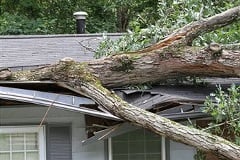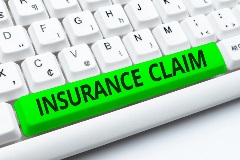From the Desk of Commissioner Tim Temple
Hurricane season officially began on June 1. This year forecasters are predicting another active season with 17 named storms, nine of which are forecast to become hurricanes with four expected to be major hurricanes.
When it comes to these storms, we as Louisianans know that it only takes one to make a bad year. That’s why it is important to always be ready for what Mother Nature throws our way.
A big way to be prepared for hurricane season is to download the LDIConnect mobile app for easy access to resources like the Wind Mitigation Survey and our Storm Claim Center. You should also contact your insurance company or agent to discuss filing a claim.
Lastly, be on the lookout for fraudulent contractors over the next several months. Homeowners should be vigilant against contractor fraud, especially after a storm. Hire licensed, insured and well-reviewed contractors and be cautious of unsolicited offers.
While I am hopeful this hurricane season will be calm and uneventful, Louisianans should prepare and remain vigilant just in case.

Medicare Assistance Following a Disaster
Your Medicare health and prescription drug guidelines may temporarily change during a declared disaster. A beneficiary with Original Medicare can see any doctor that accepts the coverage.
If you have a Medicare Advantage Plan, contact your plan for additional information. Your plan should be able to help you with the following after a disaster:
- Help you locate out-of-network providers without a referral.
- Locate an in-network pharmacy or get prescriptions from an out-of-network pharmacy when needed.
- Move prescriptions between in-network pharmacies.
- Replace a damaged or lost Medicare card.

Post-Disaster Insurance Guidance
Here are some steps to take immediately after a disaster such as a hurricane or tropical storm:
Contact your insurance company or agent first to file a claim. If possible, have your policy number and an initial assessment of the damage ready. Make sure your agent and insurance company have your correct contact information.
Take pictures or video of the damage. Visually document the damage before cleaning up and making temporary repairs. Separate damaged items but do not throw them away. Keeping damaged items will give the claims adjuster a more complete inventory of property loss.
Make temporary repairs to protect your property from additional damage. You have an obligation to mitigate further damage by taking protective measures such as putting a tarp over your roof or boarding up broken windows. Keep your receipts for these expenses.
Remain alert for potential fraud and other scams. Scammers and other criminals may attempt to take advantage of storm victims as they recover and rebuild. Some of these fraudulent practices include scammers posing as contractors or inspectors, fake solicitations for disaster donations, and false offers of state or federal aid.

FAQs: Filing a Claim
What details must I provide when I file a claim?
You will need to provide your insurance company or agent with your policy number. You’ll need to briefly explain what happened and describe the type and extent of the property damage. Let your insurance company and agent know if you’ve taken photos or videos of the damage or have cost estimates.
What questions should I ask when I file a claim?
It’s important to ask your agent or insurance company the following:
- Claim or reference number
- How long you have to file a claim
- What your policy will cover
- If your policy will cover hotel costs
- Details about your deductible
- If additional information is needed to file a claim
When should I expect to be contacted by an adjuster?
An insurance adjuster should be sent out within 30 days to inspect damage after you file your claim in a catastrophe.